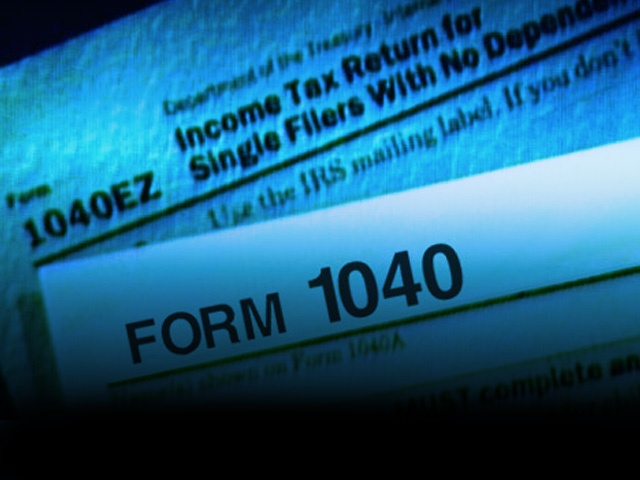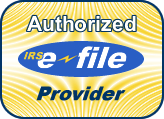Negotiate your debts with the IRS
Choosing a tax professional to formally negotiate your debts with the IRS
As the tough new rules on bankruptcy laws hit the debt industry, debt settlement is often chosen as a more palatable option for all the debtors in the US. Debt settlement is an agreement with the debtor and the creditor to settle an outstanding balance for an amount that is lower than what you actually owe. However, there’s a huge difference between owing debt to a private organization and the government. The government can take any step to recuperate the money from you and therefore, you need to be careful about the steps that you take in order to clear your dues. Just like you settle your credit card debts, have you thought about settling your IRS tax debt? Do you know whether or not it’s possible? If answered no, read on.
What is Offer in Compromise (OIC)?
The IRS or the Internal Revenue Service has recently revised all the instructions for their OIC in 2006 in response to all the changes in the tax law under the Tax Increase Prevention and Reconciliation Act. When you’re drowning in a sea of IRS tax debt, the OIC is the only worthy way out of the tax debt cycle as you can settle your debt for an amount that is less than what you actually owe. Though there are many ways in which you can get out of debt, most debtors choose Offer in Compromise as they can get the opportunity of repaying a lesser amount.
How to choose a tax professional for completing your IRS OIC
An Offer in Compromise is a time-consuming process and most people take at least 12 to 24 months to achieve complete resolution of their tax woes. Despite waiting for the long period of time, the chances of succeeding are pretty slim. Research reveals that only 17% applicants succeed in reducing their IRS tax debt through debt settlement or OIC. Since the entire process is complex enough, there are many debtors who prefer seeking help of the tax professionals to protect themselves from unnecessary scams.
The debtors often hire a tax professional who helps them with hiring a tax professional to prepare the documentation of the entire process and also to negotiate with the IRS. The tax professionals may charge you hefty fees of about $1,500 to $3,000 for the accuracy that they’ll provide you with the Offer in Compromise documentation. The tax professional should be well-versed with negotiating with the IRS consultants as without this skill, it would become tough to manage.
How to stay aware of the scams associated with settling your IRS tax debt
There are many unscrupulous tax professionals who will quote some unaffordable price for the offer. Such professionals may prepare the form but will not assist you throughout the documentation and will also avoid negotiating on your behalf. You should look for someone who is experienced in dealing with the revenue officers along with a pleasing personality.
Therefore, when you’re knee deep in IRS tax debt, make sure you take the best step forward to opt for debt settlement. Follow the advice mentioned above so that you can successfully complete the entire process and secure a debt free life.
This is a Guest Post by Shawn Ambrose who is a financial writer. He loves to contribute articles to financial websites, blogs and communities. Some topics covered by him are debt consolidation basics, settling your credit card debt, pros and cons of IRS tax debt settlement and so on.
Related articles
- What if You Default on Your IRS Payment Plan?
- Nation’s Leading Tax Relief Firm Reveals the ’7 Deadly Sins’ of IRS Tax Resolution
- What Tax Debt Relief Solutions Are Available to You
More of “Things your tax pro may not tell you”
“You wouldn’t believe it.”
Complaints about tax preparers, including allegations of inaccuracies and returns that weren’t filed on time, are up 80% in the past five years, says the Council of Better Business Bureaus. But when it comes to the Internal Revenue Service policing problem preparers, “the lifeguard is still asleep.”
Less than 1.5% of returns get audited, and while that may pacify nervous taxpayers, audits are the primary way to catch bad tax pros. The GAO found that a year after it reported poor preparers by name to the IRS, the agency had failed to audit a single one. Professional organizations, such as the American Institute of Certified Public Accountants and the National Association of Enrolled Agents, pack even less of a wallop because they often wait for the IRS to act. Then the institute will strip membership and report bad accountants to the relevant state-licensing group.
Finding this information is a two-step process. If your CPA is an AICPA member, you can find out if he’s been disciplined by the institute by checking on the AICPA website. You can retrieve details by putting his name in the site’s search box. If your CPA has been disciplined, it’s important to note the reasons why, “There is a whole range of situations where the (institute) would discipline a member.” Those could include not returning client records, disclosing confidential client information and not exercising due care in preparing a tax return. To find out if a CPA’s license has been revoked, you should check with your state board of accountancy.
“What are your qualifications?”
Concerned about unethical, unlicensed tax preparers and what has been called “sharks in the water.” “Anyone can call himself a tax preparer.” Many have. At one point as many as 600,000 tax preparers were unregulated, according to the National Taxpayer Advocate, the taxpayer assistance wing of the IRS. Some set up shop in a local real-estate office, but many work for the big chains.
This all changed with the IRS RTRP program. If your preparer doesn’t have an PTIN, they are not allowed, by law, to prepare your return for profit. (This includes any CPA, EA, Attorney, RTRP anyone who prepares) by the end of this year (2012) All non-CPA’s, EA’s, or Attorneys will have had to pass a competency test. A minimum competency test is now live and by the end of 2013, all preparers will have to pass the test in order to prepare tax returns for compensation. The new RTRP (Registered Tax Return Preparers) will also have an annual continuing education requirement of 15 hours. All the hours will be tax related.RTRP - Ask your Representative why it is that CPA’s, and Attorneys are exempt from these requirements. I say this because As it stands now, They are not and will not be tested concerning tax issues nor will they need to take CPE related to tax matters like an EA or RTRP.
“If it’s February, you’re late.”
A savvy tax pro may be able to cut your tax bill or juice your refund. But don’t expect to find one come mid February. From that point through April, tax pros are generally too busy to talk to new clients. So if you don’t already have a preparer lined up, by the time you actually have your W-2s in hand, you’re probably not going to get good service.
This means you should be talking to tax preparers in October, November or even as late as early January. They’ll have time to answer questions, look over your old returns and suggest changes. Not only that, but talking to a tax pro in the fall means you still have time to plan. If you wait until you have all your W-2s, you’ve locked in all your income for the year. But in the fall a good preparer can help you figure out ways to manipulate your income by increasing your 401(k) contributions, deferring a bonus until the new year or taking taxable losses.
Wait until spring and a professional can help you make small decisions, like whether to itemize or think about different deductions, but you’ve lost most of your flexibility.
“Taxes, whatever — let me see what else I can sell you.”
The real money in tax prep has nothing to do with 1040 forms and W-2s. For the big-chain preparers, as well as your local accountant, the register really lights up only when they persuade you to take a loan, open a retirement account or buy insurance. Chances are you don’t need what they’re selling, but the sales pitch may blur the issue. GAO staffers reported that when they visited the big-chain tax preparers, loans were described as “options” or “bank products”; on one visit a customer was asked to sign a loan application without being told what it was. RAL means Refund Anticipation Loan.
Worse, these extras can do you more harm than good: More than 80% of those who opened an “Express IRA” at H&R Block, for example, paid more in fees than they earned in interest, according to a lawsuit filed by the New York attorney general. (H&R Block says most Express IRA accounts opened between 2001 and 2005 have yielded “positive net tax savings benefits and interest earnings,” even as the company “has lost money operating this program.”)
CPAs, too, are in the sales game, ever since the AICPA allowed members to sell insurance products. When commissions can be $20,000, it’s easy to get greedy.
“If I screw up, I’ll pay up.”
Worried about an audit? H&R Block and Jackson Hewitt are happy to ease your mind — for a price. Both offer the option of buying a geared-up guarantee that promises to cover any back taxes you owe, plus interest, fees and penalties.
Here’s what they don’t say: You don’t need the extra protection. If it turns out you owe back taxes, the big chains’ basic (read: free) guarantee already covers fines, penalties and interest. Many CPAs and EAs and RTRP will do the same; they often have insurance for that very purpose. Just be sure to ask about it before one does your return. But what about the back taxes?
True, they could amount to a bigger expense than the fines and penalties, which may be why some chains can sell that extra guarantee. But H&R Block and Jackson Hewitt will cover you only up to $5,000 and exclude the most complicated returns. If you’re tempted, know there may be an unintended consequence: If someone pays your taxes, the IRS considers that taxable income.
In other words if you buy the guarantee, and H&R Block ends up paying your back taxes, expect to get a 1099 next January.
“Tax preparation is an art, not a science.”
Recent law changes (EIC to name one) tightened penalties for tax preparers who play fast and loose with the tax code, taking far-fetched positions because they know 99% of returns never get audited. That said, for anyone with a complicated or unusual financial life, there’s still lots of wiggle room, I’ve never heard “It’s about 10% black, 10% white, and everything else is in the middle.”
Chances are good you have room to maneuver if you have income in a category the tax code treats flexibly — you’re self-employed, for example, or own rental property. Ditto if you’ve earned big capital gains or incurred high or unusual medical expenses. In short, if you’re attaching a schedule to your return, a good tax preparer will pay for himself.
Now, that may mean raising a red flag with the IRS, and a good preparer should explain if he’s taking risky positions. If you can’t stomach the specter of an audit, you’ll want a pro to travel on the side of caution.
Think twice before paying someone to look for loopholes if your income picture is relatively simple. If you’ve got one W-2, you don’t need someone fancy, there’s not a lot we can do for you.
“You’d be better off.”
Maybe you’re hiring a tax preparer because you’ve got better things to do with your weekend or numbers make you dizzy — more power to you. But if you’re hiring a pro because you think he’s smarter than you, think again. On average, tax preparers make more mistakes, and costlier ones, than John Q. Taxpayer does.
According to a study of IRS data, 56% of professionally prepared returns showed significant errors, compared with 47% of those done by the taxpayer. And audited taxpayers who used preparers owed an average of $363, while those who filed themselves owed $185.
Of course, tax preparers often see more-difficult returns, which could lead to more errors.
For a family with one W-2, mortgage interest and a couple of kids, TurboTax is just fine. If, on the other hand, you’re attaching a schedule for self-employment income or capital losses, consider getting help. And even then, if a return is made complicated by a one-time event — say, the birth of a child or the acquisition of a rental property — you might need only one year’s worth of advice. If nothing changes, you should be able to copy it from year to year, so long as you keep up with tax law changes to your situation.
“You should shop around.”
There’s no standard price for doing taxes. Some preparers charge by the hour, others by the form; either way the cost depends on where you live, the complexity of your situation and the qualifications of your tax pro. Consider: The average H&R Block customer pays about $150; a CPA may charge 15 times that.
People rely too much on word of mouth; they don’t shop prices. If they did, they might be surprised. A licensed local pro may not cost much more than a national chain.
I charge by the form, and a simple return could cost just under $150.00 – not much more than what you might pay at a big chain.
Even among franchises, prices vary. The return that cost $90 to prepare at one big store cost more than three times that at another, according to a GAO study. To be fair, it may be hard to know what your return will cost before the preparer actually spends time on it. Ask for estimates using last year’s return — that’ll give you a point of comparison to find the best price.
Shop around.
Related articles
- Using the Title “Registered Tax Return Preparer”?!
- Help Me Prepare My Taxes
- A Cpa For Taxes-does It Make A Difference?
- Preparer Registration Wastes Time and Money – Guest Post by Joe Kristan
What Should Non-Filing Taxpayers Do?
Are you someone who hasn’t filed your taxes with the IRS in several years? Are you scared, stressed, and unsure what to do? Perhaps you haven’t filed for one of the following reasons:
- Catastrophic events in your personal life
- Death in your family
- A failed business
- Failed relationships
And now, you’re trapped in a position where you believe that if you come clean with your actions, you’ll get sent to jail. Fortunately, the IRS only prosecutes the most egregious cases of non-filing, and the occasional common person in order to demonstrate a point.
If you choose to approach the IRS about non-filing, in most cases they will work with you. The term for the process of approaching the IRS to resolve your delinquent taxes is “voluntary compliance.”
Once you have identified with the IRS as someone who is providing “voluntary compliance,” it is important to be accurate and truthful. If the IRS believes any of your late-filed returns are dishonest, your chances of prosecution skyrocket.
In order to qualify for “voluntary compliance” status, you must:
- Voluntarily notify the IRS of each year you failed to file
- Have income from only legal sources
- Approach the IRS prior to being criminally investigated
- Cooperate with the IRS in determining your correct tax liability
- Pay the full amount due or make arrangements to do so if you are unable
It’s better to file your taxes late than not at all. The IRS is typically willing to create installment payment plans for those who are unable to pay in full right away. You may also qualify for an offer in compromise, which forgives all or part of your tax liability.
What Happens If I Never File?
If you choose not to file voluntarily, you may eventually face criminal prosecution by the IRS. More commonly, if you were owed a refund in the past 3 years, you may lose it if you don’t file. If you did owe money, your interest and penalties will continue to grow.
If you approach the IRS, however, they may be willing to forgive some of your interest and penalties.
Additionally, the IRS may file a tax return on your behalf. In this case, the IRS prepares a tax return in its own best interest. This tax return may not give your credit for deductions and exemptions for which you may normally be entitled.
It’s Always Best to Approach the IRS!
No matter what way you look at it, it’s always best to approach the IRS than to say nothing at all. If you use the assistance of an experienced tax attorney, your chances of receiving a favorable outcome dramatically increase.
About the Author:
Jeff Fouts is a tax attorney. If you are a “non-filer,” use the help of an experienced tax attorney or other tax professional to deal effectively with the IRS.
Related articles
- New IRS “Soft Notice” Pilot Program
- IRS Collection Procedures
- Tax Record Keeping Advice for Small-Business-Owning Technophobes
- What to Do When You’re Struggling With Taxes
Small Business Retirement Benefits Will Face Trouble With New Tax Reform
This is a guest post from Tim Chen, the CEO of NerdWallet, an unbiased resource for the best business credit cards.
A new round of tax reforms, which could be announced as early as this December, may jeopardize small business owners’ ability to provide retirement benefits for employees. The reforms, which are part of the push to reduce the federal deficit, could eliminate employer incentives to provide retirement benefits, making it impossible in many cases for small business owners to afford to do so. Such a shift could make it harder for small businesses to compete with larger corporations, by reducing their ability to attract and retain talent.
Until now, tax incentives have rewarded business owners who provide retirement benefits by making employer contributions to retirement plans tax-deductible, a compelling bonus for many small business owners. For employees, the new reforms are likely to lead to lowered caps on personal contributions and may remove the tax-deductible status of such contributions. Instead, employees would receive a flat tax credit of 18% or 30% when they withdraw funds in their old age.
The move is likely to hurt both small business owners and their employees, who are statistically less likely to invest in their own retirement plans without the incentive of employer contributions.
If you’re a small business owner, the choice to provide retirement benefits to your employees will depend to a large extent on what you can afford. Fortunately, there are a variety of options out there, so you can choose the type of plan that works best for you and your business. Let’s take a look at some of the most common choices for small business owners.
SEP IRAs
Simplified Employee Pensions, or SEP IRAs are one of the most flexible ways for employers to contribute to employee retirement plans. Employers fund the plans exclusively, so there are no requirements for you to match employee contributions. As of 2011, employer contributions are capped at $49,000 per employee per year. Yearly contributions can range from 0% to 25% of an employee’s income. This flexibility is perfect for small business owners; if times are lean at your company, you can hold off contributing and make up the difference in a better year. Also, employer contributions are (at least for now) tax-deductible.
If you’re on the employee side of the equation, keep in mind that this type of plan offers no emergency loan or “Roth option,” and you won’t be able to do any catch-up if you’re over 50.
SIMPLE IRAs
These plans aren’t as simple as the name implies. are also known as With Savings Incentive Match Plans for Employees, or SIMPLE IRAs, both employers and employees contribute to the plan, and employers must match up to 3% of each employee’s wages. The employer contribution cap is lower with SIMPLE IRAs than it is with a 401(k) plan. Employee contribution caps are also lower, coming in at $11,500 per year (as of 2011).
Like the SEP IRA, this type of plan doesn’t offer any Roth option, nor does it allow employees to take emergency loans from their retirement plan. The lower contribution caps may appeal to some small business owners who find the SIMPLE IRA more affordable than a 401(k).
401(k) plans
These plans, like rewards credit cards, have more perks and offer more flexibility. They also tend to be more costly and complicated for small business owners to offer. 401(k) plans offer the highest contribution limits for both employers and employees, and employees over 50 can play catch-up with higher contribution limits.
As an employer, you can limit which employees are eligible for the plan, allowing you to reward long-term loyalty to your company. Employee contributions are capped at $16,500 (as of 2011). While employees can choose to make tax-deferred contributions to their plans over the course of their careers, they can also opt for a Roth 401(k) in which they pay all taxes upfront.
For small business owners, these plans can make life more complicated. Employers who offer 401(k) plans must meet Employee Retirement Income Security Act (ERISA) regulations and standards. Like the Durbin Amendment, ERISA is intended to protect the public, but it can make your job as an employer more complicated. Employers who offer 401(k) plans are also subject to increased IRS reporting requirements.
Related articles
- Boost Your Retirement Savings
- Help! I don’t know what retirement plan you’re talking about!
- The Basics of a Traditional IRA
Tax collector bonds protect the public from fraudulent professionals
 Many people have heard that business professionals and elected officials need to be “bonded,” but few understand what the term really means. Government agencies establish surety bond regulations to keep fraudulent or otherwise unethical individuals from getting access to certain jobs.
Many people have heard that business professionals and elected officials need to be “bonded,” but few understand what the term really means. Government agencies establish surety bond regulations to keep fraudulent or otherwise unethical individuals from getting access to certain jobs.
Tax collecting officials are elected and/or hired to assess and collect taxes on behalf of different government agencies. Although they are expected to serve the public, some tax collectors choose to behave unethically. Tax collector bonds essentially function as a financial guarantee that tax collectors will perform their duties according to law.
So what’s a tax collector bond, anyway?
A tax collector bond is a specific type of surety bond, which is a risk mitigation tool that acts as a legally binding contract. Each tax collector bond that’s executed involves three entities:
- The principal is the tax collector who purchases the bond as a financial guarantee of work to be done.
- The surety is the insurance company or specialty surety agency that issues the bond as a financial guarantee of the tax collector’s ability to complete duties appropriately.
- The obligee is the entity that requires the principal to purchase a bond as a way to deter fraud and potential financial loss.
When a bonded tax collector breaks governing laws, the bond’s obligee or other harmed party can make a claim on the bond to recover what was lost as a result of the tax collector’s negligence.
How do tax collector bonds offer protection?
Tax collector bonds provide an array of protection that varies depending on a bond’s technical language. They generally guarantee that tax collectors and their affiliates will manage money appropriately and perform related duties legally and ethically. Tax collector bonds also cover liability in the case of uncollected taxes. With the help of tax collector bonds, citizens are assured that the local government is making an effort to provide the public with ethical tax collection services.
How do Missouri tax collector bonds work?
The Taxation Division of the Missouri Department of Revenue regulates tax collectors in the state. As such, the division requires the state’s tax collectors to provide a surety bond known as “Bond of the Collector/Ex-Officio Collector or Revenue” before they can begin fulfilling their tax collecting duties.
The bond’s penal sum will vary depending on the monetary amount of taxes that a tax collector will collect for a specific jurisdiction. So if a county tax collector is responsible for collecting $500,000 in county taxes, the collector must maintain $500,000 in bond coverage. However, the bond’s language clarifies that the penal sum may not exceed $750,000; otherwise tax collectors would have trouble finding surety providers to issue such large bonds. Furthermore, tax money that’s collected typically decreases significantly as the fiscal year progresses, in which case the bond amount can also be decreased.
As taxpayers, we all want to know that our taxpayer dollars are allocated appropriately rather than being mishandled by corrupt officials. Fortunately, tax collector bonds help do just that by protecting against potentially unruly tax collectors.
This article was provided by SuretyBonds.com, a nationwide surety bond producer. Because the surety industry is often misunderstood, SuretyBonds.com provides educational resources to the general public to help them understand the benefits provided by surety bonds.
Spring Cleaning: Tax Records
Sprin g is a great time to clean out that growing mountain of tax and financial papers that clutters your home and office. Here’s what you need to keep and what you can throw out without fearing the wrath of the IRS.
g is a great time to clean out that growing mountain of tax and financial papers that clutters your home and office. Here’s what you need to keep and what you can throw out without fearing the wrath of the IRS.
Let’s start with your “safety zone,” the IRS statute of limitations. This limits the number of years during which the IRS can audit your tax returns. Once that period has expired, the IRS is legally prohibited from even asking you questions about those returns.
The concept behind it is that after a period of years, records are lost or misplaced and memory isn’t as accurate as we would hope. There’s a need for finality. Once the statute of limitations has expired, the IRS can’t go after you for additional taxes, but you can’t go after the IRS for additional refunds, either.
The Three-Year Rule
For assessment of additional taxes, the statute of limitation runs generally three years from the date you file your return. If you’re looking for an additional refund, the limitations period is generally the later of three years from the date you filed the original return or two years from the date you paid the tax. There are some exceptions:
- If you don’t report all your income and the unreported amount is more than 25% of the gross income actually shown on your return, the limitation period is six years.
- If you’ve claimed a loss from a worthless security, the limitation period is extended to seven years.
- If you file a “fraudulent” return, or don’t file at all, the limitations period doesn’t apply. In fact, the IRS can get you at any time.
- If you’re deciding what records you need or want to keep, you have to ask what your chances are of an audit. A tax audit is an IRS verification of items of income and deductions on your return. So you should keep records to support those items until the statute of limitations runs out.
Assuming that you’ve filed on time and paid what you should, you only have to keep your tax records for three years, but some records have to be kept longer than that.
Remember, the three-year rule relates to the information on your tax return. But, some of that information may relate to transactions more than three years old.
Here’s a checklist of the documents you should hold on to:
- Capital gains and losses. Your gain is reduced by your basis – your cost (including all commissions) plus, with mutual funds, any reinvested dividends and capital gains. But you may have bought that stock five years ago and you’ve been reinvesting those dividends and capital gains over the last decade. And don’t forget those stock splits.You don’t ever want to throw these records away until after you sell the securities. And then if you’re audited, you’ll have to prove those numbers. Therefore, you’ll need to keep those records for at least three years after you file the return reporting their sales.
- Expenses on your home. Cost records for your house and any improvements should be kept until the home is sold. It’s just good practice, even though most homeowners won’t face any tax problems. That’s because profit of less than $250,000 on your home ($500,000 on a joint return) isn’t subject to taxes under tax legislation enacted in 1997.If the profit is more than $250,000/$500,000, or if you don’t qualify for the full gain exclusion, then you’re going to need those records for another three years after that return is filed. Most homeowners probably won’t face that issue thanks to the 1997 tax law, but of course, it’s better to be safe than sorry.
- Business records. Business records can become a nightmare. Non-residential real estate is now depreciated over 39 years. You could be audited on the depreciation up to three years after you file the return for the 39th year. That’s a long time to hold on to receipts, but you may need to validate those numbers.
- Employment, bank, and brokerage statements. Keep all your W-2s, 1099s, brokerage, and bank statements to prove income until three years after you file. And don’t even think about dumping checks, receipts, mileage logs, tax diaries, and other documentation that substantiate your expenses.
- Tax returns. Keep copies of your tax returns as well. You can’t rely on the IRS to actually have a copy of your old returns. As a general rule, you should keep tax records for 6 years.The bottom line is that you’ve got to keep those records until they can no longer affect your tax return, plus the three-year statute of limitations.
- Social Security records. You will need to keep some records for Social Security purposes, so check with the Social Security Administration each year to confirm that your payments have been appropriately credited. If they’re wrong, you’ll need your W-2 or copies of your Schedule C (if self-employed) to prove the right amount. Don’t dispose of those records until after you’ve validated those contributions.You can confirm your payments and estimate your future benefits by filing Form SSA-7004 with the Social Security Administration. You can download the form, orapply online.
If you have any questions about what records you need to keep this spring, feel free to contact me.
Possible Tax Deductions for Small Business Owners
 Today, April 18th is the dreaded “D” Day: Taxes are due. If you are a small business owner and have waited until the last minute to take care of your taxes make sure to consider the deductions listed below. If you’ve already filed, then you can always take them into account come next year’s filing season.
Today, April 18th is the dreaded “D” Day: Taxes are due. If you are a small business owner and have waited until the last minute to take care of your taxes make sure to consider the deductions listed below. If you’ve already filed, then you can always take them into account come next year’s filing season.
You have a “Home-Business”
If you run your business is ran through your home, you can acquire a huge tax deduction. There are two different ways that the IRS says you can qualify: 1) regular and exclusive use and 2) principal place of business.
“Regular and exclusive use” simply means that you use a spare bedroom or den in your home only to conduct business. For instance perhaps you run an online business through your bedroom or perhaps you’re a lawyer and file legal briefs etc. within one designated area on a regular basis (this is the key word, regular basis). This is not to be confused with simply having a “home office” where it serves as more of just a convenience. To learn more and how to differentiate the two, click here.
“Principal place of business,” on the other hand, means that while you may have other offices, the head office or headquarters is located within your home. Generally proof that administrative and bookkeeping tasks are completed within the home is needed to claim this deduction. To learn more, click here.
You Wine and Dine Your Clients
The IRS also allows small business owners to claim up to 50 percent deductions if you have proof that your meal and entertainment expenses/ transactions are business-related. This means that you have to partake in some sort of business endeavor/discussion either before the meal/event or at least after. However, you must have your receipts in order to claim this deduction (no exceptions). So if you did not save your receipts last year, start to do so now. Additional note: do not try to get deductions from un-related business meals/events. The IRS frequently audits those who claim this deduction since it is the one that is abused the most.
Business –Related Travel
If you use your personal vehicle for business-related purposes, for instance you use your car to meet up clients, customer or vendors or even to attend a local business meeting, the IRS allows you to deduct the mileage. It’s important that you keep accurate accounts and mileage records however, since this is an auditing-prone deduction as well. To learn the standard mileage rates, click here.
If you go on a “business trip”, you can also qualify for a deduction. But like all of the other deductions the trip has to directly correlate with your line of work and you must save all of your receipts in order to receive a 100 percent deductible on your business-travel expenses.
With that said, here are some additional deductibles you can consider as well: Cost of goods sold; charitable donations; and software, advertising and education expenses.
By-line:
This guest contribution was submitted by Jamie Davis, who specializes in writing about masters degree. Questions and comments can be sent to: [email protected].






















